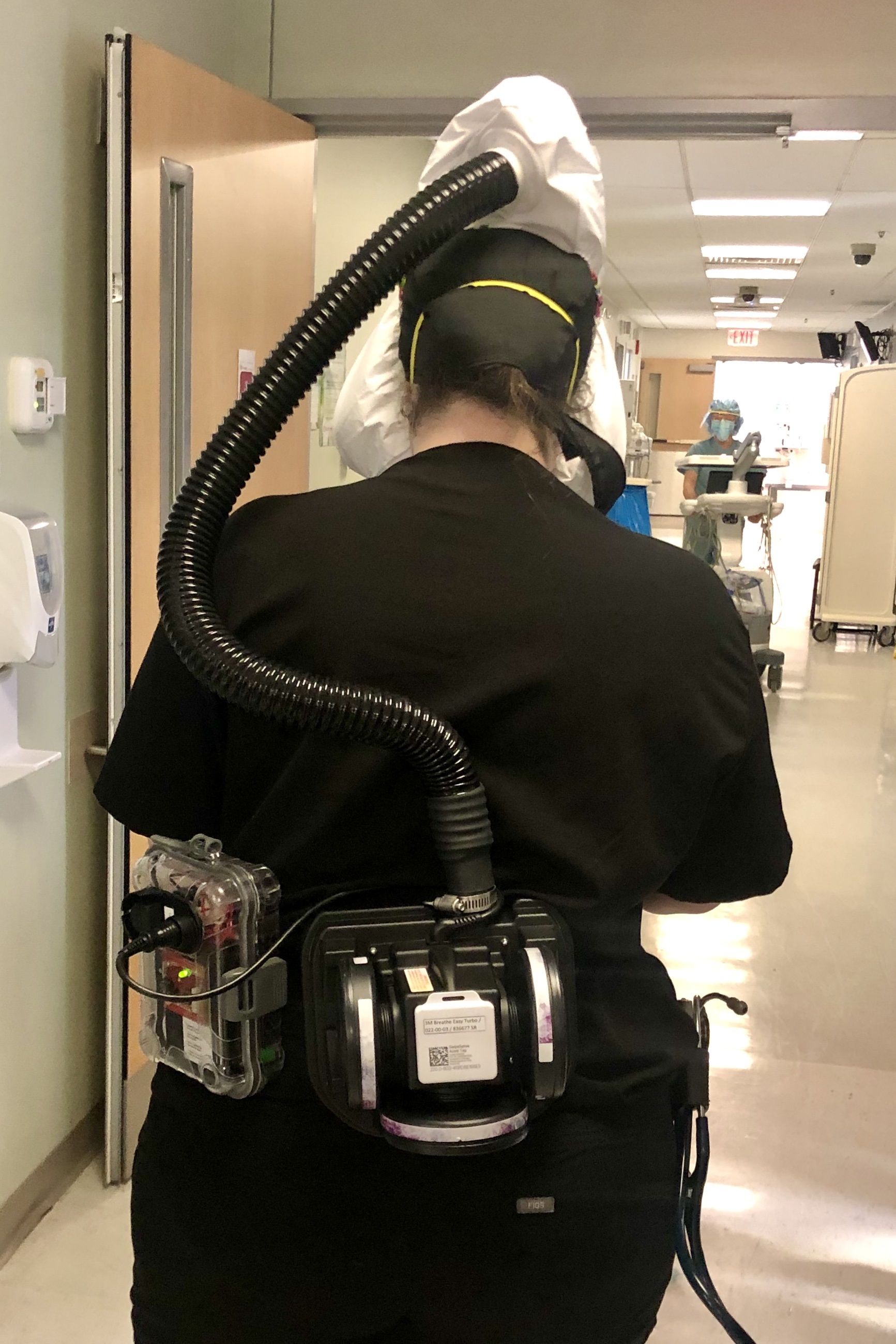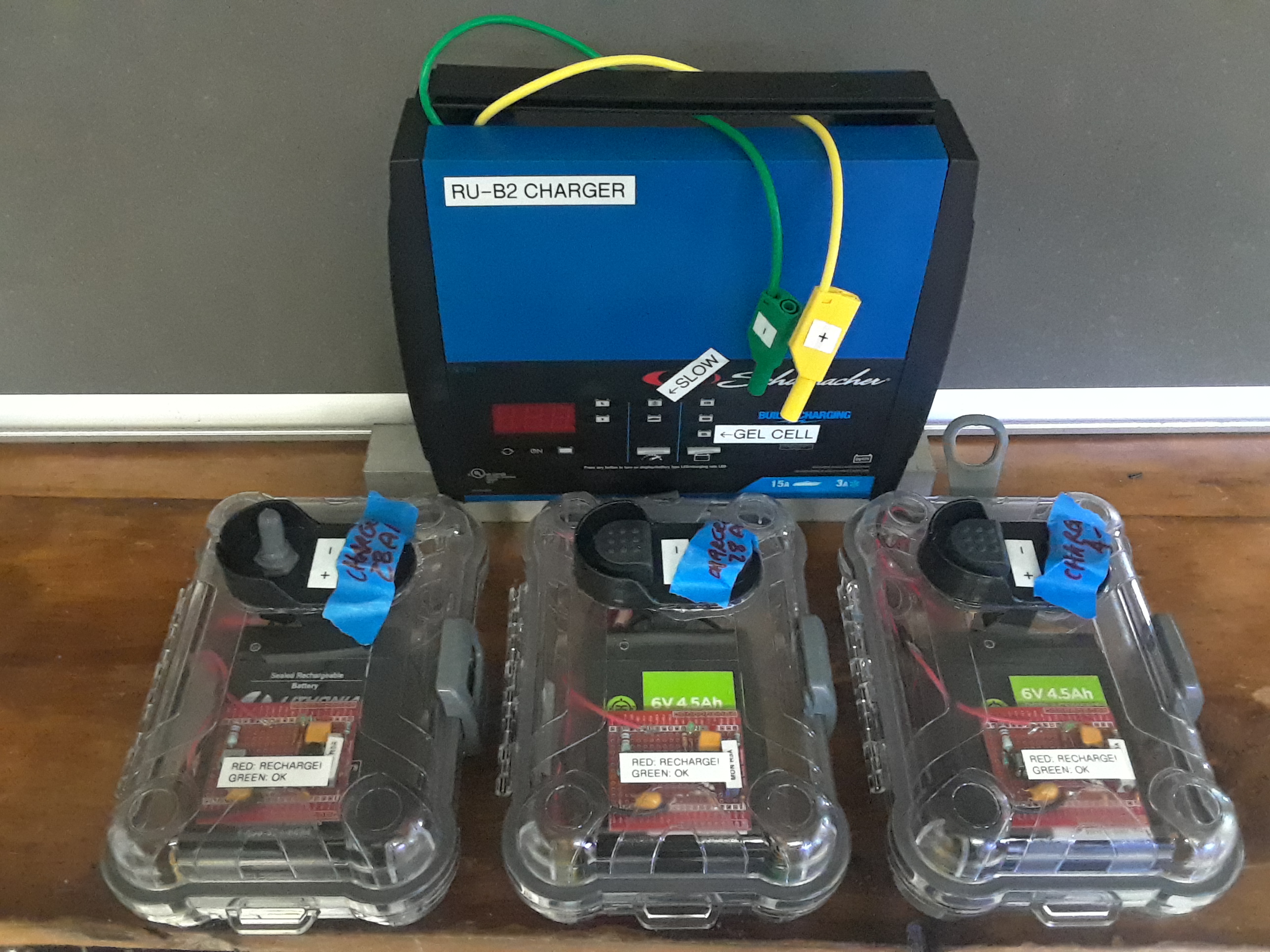Rowan batteries boost protection for Cooper doctors
Rowan batteries boost protection for Cooper doctors

Using their know-how and parts bought at a local hardware store, two Rowan University electrical engineers recently built rechargeable batteries to power critically needed personal protective equipment for Cooper University Hospital in Camden.
Dr. Robert Krchnavek and Dr. John Schmalzel, both professors at the Henry M. Rowan College of Engineering, developed the custom-made batteries for powered air purifying respirators, called PAPRs.
Designed to protect users by filtering out contaminants while supplying clean air, Cooper’s PAPR hoods require non-rechargeable lithium batteries that have a long shelf life and are typically readily available. There was just one problem. The batteries were on back-order and not expected for months. 
“They were going through their non-rechargeable batteries kind of quickly,” Krchnavek said.
With COVID-19 cases increasing in South Jersey amid a national shortage of personal protective equipment, Dr. Michael Kirchhoff, Cooper University Health Care’s patient safety officer, handed over two dead batteries and asked Rowan engineers to make rechargeable versions to power the hoods. Kirchhoff is also an assistant professor of emergency medicine at Cooper Medical School of Rowan University.
“He knew what we could do and he knew our capabilities,” said Dr. Mark Byrne, founding head of Biomedical Engineering at Rowan. “We’re happy to help. We have a lot of excellent faculty and students, both undergraduate and graduate, who want to solve problems and do it efficiently and effectively, and you’re seeing it now.”
Over a weekend, the two electrical engineers figured out how to safely discharge the old batteries within hours, instead of days, so they could salvage them for parts.
Two days after receiving the request, the pair delivered their first prototypes to Kirchhoff, collecting three more dead batteries and a new challenge: Could they design two batteries to fit Cooper’s PAPR hoods: a lightweight, rechargeable battery that could last about 20 to 30 minutes at a time, and a second version that might last up to 12 hours in an operating room?
They set to work on their revisions, adding a water-tight plastic case for easy cleaning, a simple red-and-green LED indicator to show when the battery needed to be recharged, and external connectors, so providers could easily recharge it.
By the following weekend, Krchnavek met Kirchhoff outside Cooper, and handed over the improved batteries and a battery charger.
“The Rowan team has been incredibly responsive and invaluable in helping us to be prepared to meet the ever increasing demands of our COVID response," Kirchhoff said. "Without their efforts, we would have had less flexibility in our PAPR deployment.”
Dr. Deena Wasserman, a Cooper University Health Care emergency medicine physician, said the "batteries worked flawlessly with our existing PAPRs. Having these batteries help us to maintain the full range of personal protection equipment for those caring for patients in our emergency department."
In each case, the materials, labor and delivery costs were donated by the university.
Krchnavek said he’s never worked on a project with such urgency, “where people’s lives are at stake.” The two engineers are working to replace 10 more dead batteries collected from Cooper over the past two weeks. To speed production, they are making a printed circuit board, so they can replace batteries in less than an hour.
“It’s nice to be doing a project that helps people,” Krchnavek said, especially one with an immediate, direct impact.